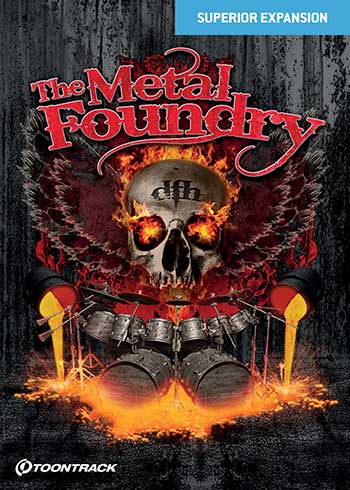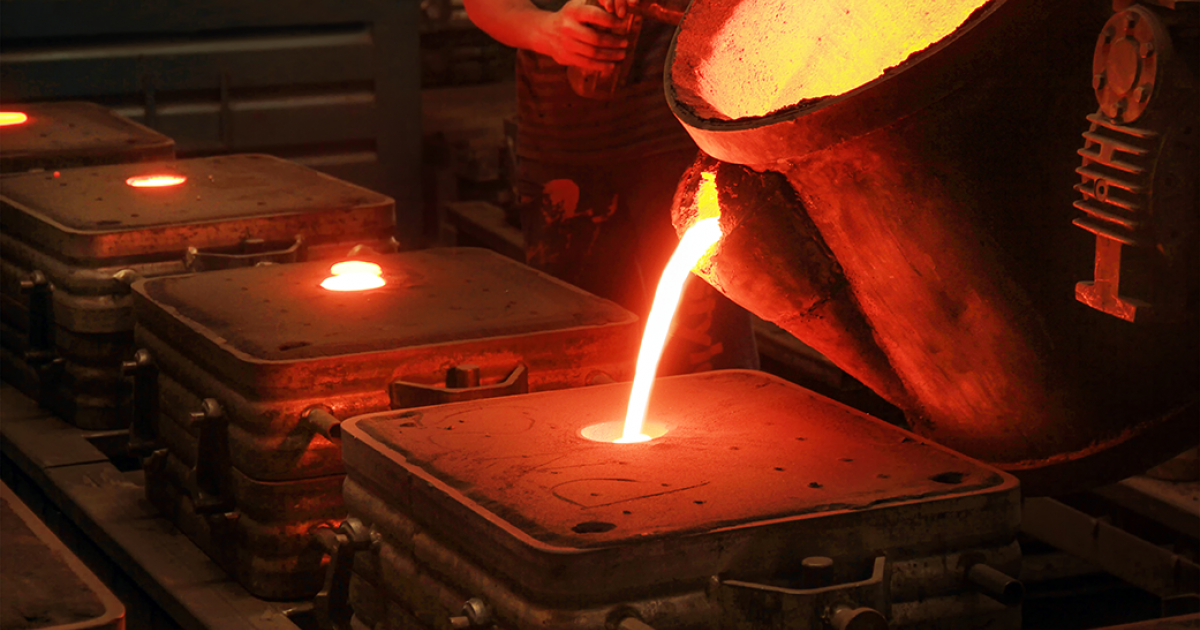Career Paths in the Metal Casting Industry and How to Get Started
Wiki Article
A Comprehensive Guide to Metal Casting: Advantages and Providers Offered by Foundries
Metal casting is an important procedure in various sectors, offering various benefits through the services of shops. These centers change liquified metal into exact and resilient elements, accommodating particular customer demands. By utilizing sophisticated modern technologies, shops guarantee top quality and effectiveness in production. Nevertheless, the ins and outs of metal casting and the diverse techniques included elevate essential concerns concerning its duty in contemporary production. What technologies lie ahead in this crucial area?Understanding the Metal Casting Process
The metal casting process is an essential technique used in making to develop intricate forms and components. This technique includes putting molten metal into a mold and mildew developed to develop the desired things. The procedure begins with pattern development, which serves as a template for the mold and mildew. Metal Casting. Different materials, such as sand, metal, or ceramic, are made use of for mold-making, depending on the details requirements of the casting
As soon as the mold is prepared, liquified metal is poured into it and allowed to strengthen and cool. After solidification, the mold is eliminated, disclosing the actors component. Different methods, including sand casting, investment casting, and die casting, are employed, each matched to different applications and products. Quality control measures, such as inspections and testing, are vital to guarantee the end product fulfills requirements. Overall, the metal casting procedure plays a crucial duty in creating parts for sectors ranging from vehicle to aerospace.
Trick Advantages of Metal Casting
Metal casting supplies considerable benefits that make it a recommended production approach in different markets. Its design adaptability and precision enable detailed forms, while affordable automation boosts efficiency. In addition, the flexibility and stamina of products made use of in casting add to the toughness of the last products.Style Adaptability and Accuracy
Launching exceptional style adaptability and precision, metal casting permits developers and engineers to produce elaborate shapes and attributes that would be tough or difficult to accomplish with various other manufacturing approaches. This ability allows the production of complicated geometries, internal frameworks, and fine details that improve item capability and appearances. In addition, different casting methods, such as sand casting, investment casting, and pass away casting, offer further alternatives for personalization, suiting diverse material homes and task needs. The flexibility of mold and mildews permits adjustments during the style stage, streamlining the shift from principle to end product. Ultimately, metal casting stands apart for its ability to provide high-precision elements, making it an indispensable process in industries ranging from auto to aerospace and beyond.Affordable Automation
Cost-effective mass production stands as one of the key advantages of metal casting, making it possible for manufacturers to produce huge quantities of parts at a reduced price each. This effectiveness develops from the ability to produce intricate molds that can be recycled numerous times, substantially reducing arrangement and functional expenses. In addition, metal casting procedures, such as sand casting and pass away casting, enable high throughput, making it possible to meet the demands of large-scale production runs. The reduced product waste and energy usage better boost expense savings, making metal casting an attractive option for sectors requiring bulk elements. Generally, the cost-efficient nature of metal casting settings it as a preferred approach for producers intending for economic performance in their production procedures.Material Flexibility and Strength
Among the standout features of metal casting is its remarkable material adaptability, which enables using a large range of alloys and metals. This versatility makes it possible for manufacturers to choose products that best match their details applications, from aluminum and bronze to iron and steel. Each metal supplies distinct buildings, consisting of differing degrees of stamina, corrosion resistance, and thermal conductivity. Consequently, metal casting can create elements that satisfy stringent performance requirements throughout diverse markets, such as vehicle, aerospace, and construction. Additionally, the strength of cast steels can be improved through different therapy processes, guaranteeing sturdiness and long life. Aluminum Casting. Overall, the combination of material versatility and integral toughness makes metal casting a preferred selection for producing top quality elementsKinds of Metal Casting Strategies
Metal casting includes a variety of techniques that cater to different manufacturing needs and product buildings. Typical methods consist of sand casting, which makes use of a sand mold for intricate shapes, and investment casting, recognized for its precision and surface coating. Die casting is one more technique that employs high-pressure injection of molten metal into mold and mildews, perfect for automation of tiny parts.Shell molding provides a faster alternate, using a resin-coated sand to develop thin-walled molds, while shed foam casting permits for intricate layouts without the requirement for a core.
Additionally, continuous casting is utilized for generating long sections of metal, such as sheets or bars, by strengthening liquified metal in a continuous process. Each method is and provides special advantages picked based on factors like the required information, manufacturing quantity, and material type, ensuring premium results in metal fabrication across different sectors.
The Role of Foundries in Metal Casting
Foundries play a crucial duty in the metal casting procedure, functioning as the centers where liquified metal is changed into finished products. These specialized establishments are equipped with the required tools and modern technologies to deal with different steels, making sure high-grade outcomes. Shops are accountable for a number of vital functions, including thawing the metal, pouring it right into molds, and enabling it to strengthen.In addition, they preserve stringent safety and security and ecological requirements to protect employees and minimize eco-friendly impact. Proficient service technicians and engineers collaborate to maximize casting procedures, improving effectiveness and decreasing waste. Factories also involve in quality assurance procedures, making certain that the end products satisfy specific tolerances and specifications. This quality control is essential for markets that rely on precise parts, such as automotive and aerospace. Because of this, shops add considerably to the general manufacturing landscape, allowing development and growth throughout numerous sectors.
Custom Metal Casting Solutions
Custom-made metal casting services offer customized layout solutions that meet certain client requirements. These solutions likewise give product choice experience, ensuring the best metal is chosen for the desired application. Such adaptability and expertise boost the general top quality and efficiency of the end product.
Tailored Layout Solutions
Customized layout options in metal casting give producers with the versatility to produce elements that satisfy specific efficiency and aesthetic requirements. Shops provide tailored services that allow customers to define measurements, forms, and surface area finishes to achieve wanted end results. This customization process typically includes cooperation between designers and designers, making sure that the last items straighten with operational demands and market criteria. Advanced technologies, such as computer-aided layout (CAD) look at this web-site and simulation software, allow exact modeling and screening of elements before production, enhancing and lessening errors performance. By leveraging tailored design remedies, services can maximize capability while minimizing waste and prices, ultimately resulting in an extra competitive edge on the market. This versatility is necessary for industries requiring unique applications and specifications.Material Choice Expertise
When choosing products for metal casting, expertise plays an essential duty in making sure that the appropriate selection aligns with both efficiency requirements and cost-effectiveness. Foundries use knowledgeable specialists that comprehend the properties of different steels and alloys, allowing them to suggest optimal materials for details applications. Factors such as toughness, corrosion resistance, and thermal conductivity are very carefully taken into consideration to fulfill the client's requirements. In addition, industry patterns and developments in material scientific research inform these decisions, enabling shops to remain affordable. By leveraging their expertise, factories can aid customers in steering through facility product choices, ultimately bring about boosted item top quality and reduced production costs. This customized understanding is crucial for achieving successful outcomes in custom-made metal casting solutions.Quality Assurance in Metal Casting
Quality control in metal casting is essential to assure that the end products meet the called for specs and efficiency standards. Factories use a selection of techniques and methods to guarantee the finest of cast parts. This process starts with strict material inspections, validating that raw materials adhere to market requirements. Throughout the casting process, real-time tracking and testing are conducted to analyze parameters such as temperature, mold integrity, and dimensional accuracy.
Applications of Metal Castings Across Industries
Metal spreadings play a vital role in numerous markets, serving as the foundation for many applications. In the automotive sector, cast elements such as engine blocks and transmission housings are essential for car performance and integrity. The aerospace market depends on precision spreadings for important components that ensure safety and security and effectiveness in trip. Furthermore, the building and construction sector uses metal castings for fixtures, installations, and architectural aspects, boosting the durability of structures and facilities.The energy industry benefits from castings used in turbine blades and other tools necessary for power generation. The clinical field additionally uses metal spreadings in devices and tools, demonstrating the flexibility of this production procedure. In general, metal castings are essential to the performance and advancement of varied industries, showcasing their relevance in modern innovation and infrastructure development
Regularly Asked Questions
What Materials Are Generally Made Use Of in Metal Casting?
Common products made use of in metal casting consist of light weight aluminum, iron, bronze, steel, and brass. Each material provides one-of-a-kind residential or commercial properties ideal for various applications, permitting makers to select the finest choice based upon strength, corrosion, and weight resistance.The length of time Does the Metal Casting Refine Typically Take?
The metal casting procedure usually takes several hours to a few days, relying on variables such as the intricacy of the layout, sort of metal utilized, and the specific casting method employed by the shop.
What Is the Ecological Influence of Metal Casting?
The environmental effect of metal casting includes energy consumption, discharges, and waste generation. Foundries typically carry out steps to minimize these effects, such as recycling products and making use of cleaner technologies to decrease their ecological footprint.Can Metal Casting Be Provided For Small-Scale Projects?
Metal casting can without a doubt be done for small-scale projects. Different shops accommodate such needs, offering personalized services that accommodate limited production runs while keeping quality and accuracy in the end products.What Are the Safety And Security Measures in Metal Casting Foundries?
In metal casting foundries, precaution include personal protective tools, proper air flow, training on devices usage, emergency treatments, routine upkeep checks, and adherence to sector safety criteria to minimize risks connected with liquified metal and harmful materials.In addition, metal casting processes, such as sand casting and useful link pass away casting, allow for high throughput, making it feasible to fulfill the demands of large-scale production runs. One of the standout qualities of metal casting is its remarkable material adaptability, which allows for the usage of a wide range of metals and alloys. Additionally, constant casting is made use of for generating long sections of metal, such as sheets or bars, by strengthening liquified metal in a continuous procedure. Factories play a pivotal function in the metal casting procedure, offering as the facilities where molten metal is transformed into finished items. Usual materials used in metal casting consist of light weight aluminum, iron, bronze, brass, and steel.
Report this wiki page